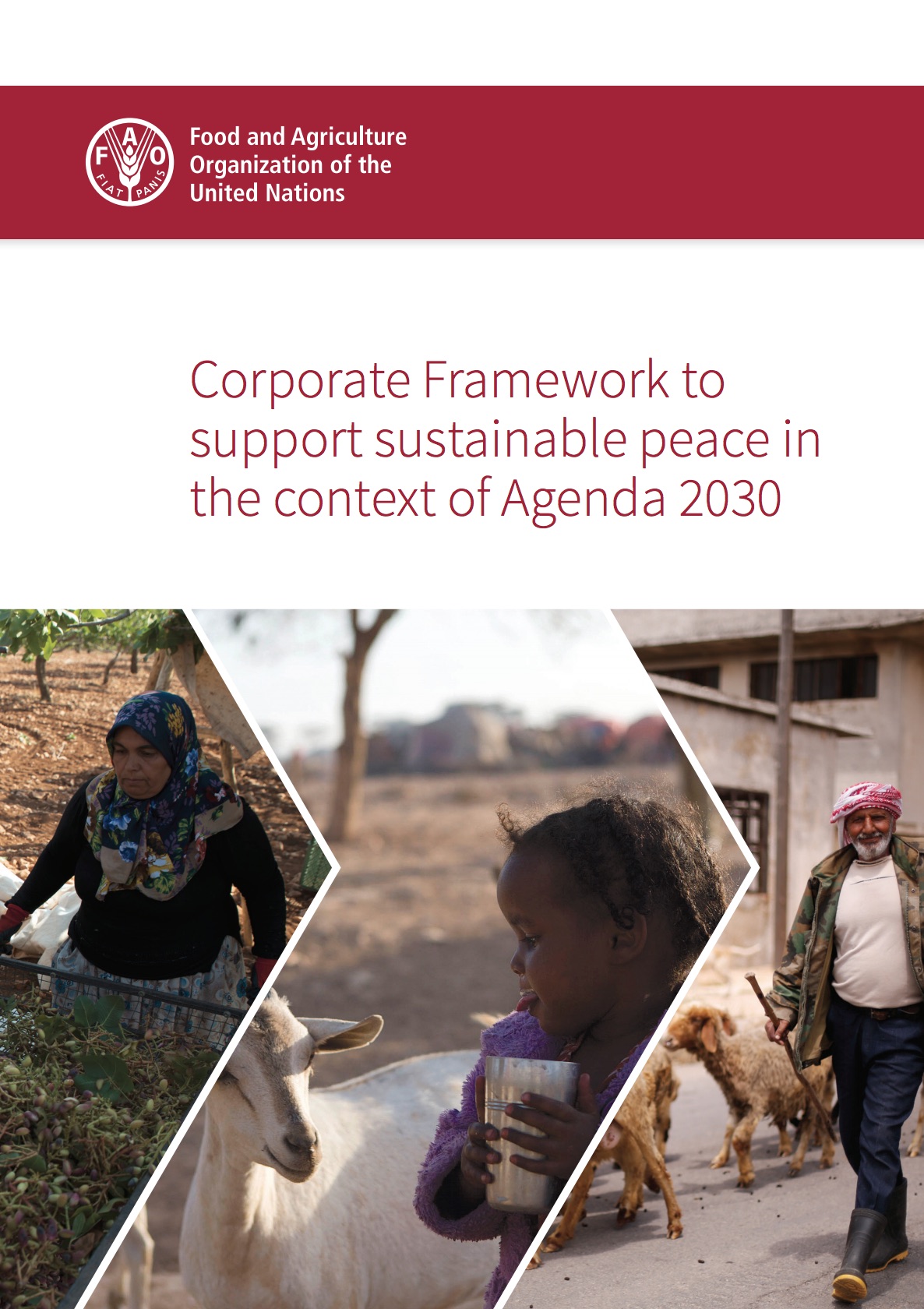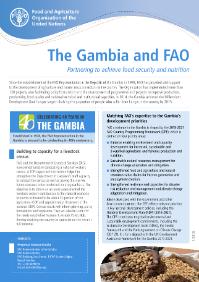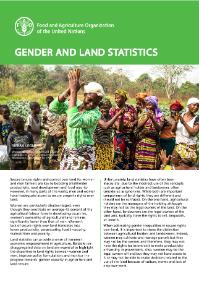Focal point
Location
The Food and Agriculture Organization of the United Nations leads international efforts to defeat hunger. Serving both developed and developing countries, FAO acts as a neutral forum where all nations meet as equals to negotiate agreements and debate policy. FAO is also a source of knowledge and information. We help developing countries and countries in transition modernize and improve agriculture, forestry and fisheries practices and ensure good nutrition for all. Since our founding in 1945, we have focused special attention on developing rural areas, home to 70 percent of the world's poor and hungry people.
Members:
Resources
Displaying 556 - 560 of 5074Realizing Women's Rights to Land in the Law
Goal 5 of the Sustainable Development Goals (SDGs) "Achieve gender equality and empoer all women and girls" regonizes the fundamental role of women in achieving poverty reduction, food security and nutrition. Target 5.a aims to "undertake reforms to give women equal rights to economic resources, as well as access to ownership and control over land and other forms of property, financial services, inheritance and natural resources, in accordance with national laws".
Realizing Women's Rights to Land in the Law
Goal 5 of the Sustainable Development Goals (SDGs) "Achieve gender equality and empoer all women and girls" regonizes the fundamental role of women in achieving poverty reduction, food security and nutrition. Target 5.a aims to "undertake reforms to give women equal rights to economic resources, as well as access to ownership and control over land and other forms of property, financial services, inheritance and natural resources, in accordance with national laws".
Corporate Framework to support sustainable peace in the context of Agenda 2030
The objective of this corporate Framework (the ‘Framework’) is to guide the Food and Agriculture Organization of the United Nations (FAO) in carrying out its mandate in its areas of competence and comparative advantage, i.e. food security, nutrition and sustainable agriculture, towards a more deliberate and transformative impact on sustaining peace.
The Gambia and FAO
Since the establishment of the FAO Representation in the Republic of the Gambia in 1978, FAO has provided vital support
to the development of agriculture and natural resource sectors in the country. The Organization has implemented more than120 projects, also facilitating policy formulation and the development of programmes and projects to improve production,productivity, food quality and national technical and institutional capacities. In 2014, the Gambia achieved the MillenniumGender and Land Statistics
Secure tenure rights and control over land for women and men farmers are key to boosting smallholder productivity, rural development and food security. However, in many parts of the world, men and women have inadequate access to secure property rights over land. Women are particularly disadvantaged: even though they constitute on average 43 percent of the agricultural labour force in developing countries, women’s ownership of agricultural land remains significantly lower than that of men.










